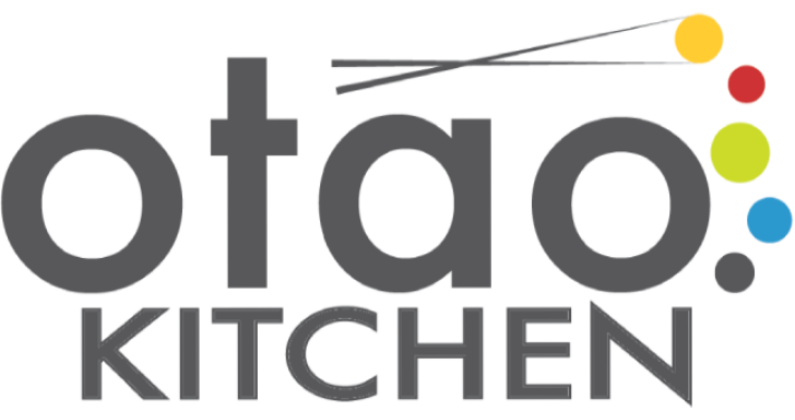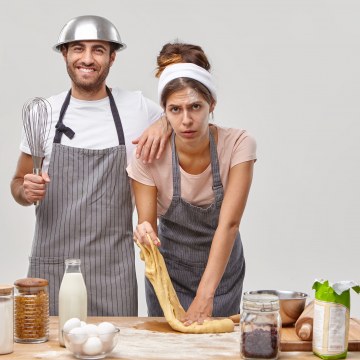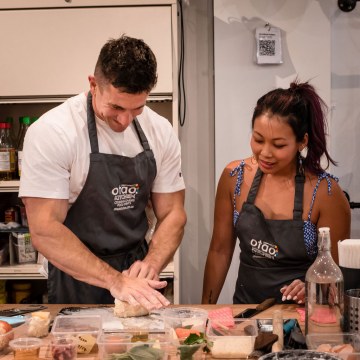But here’s the thing: not all cooking classes are the same.
Some are designed for hobbyists. Some focus on professional skills. And some, like NDIS-focused cooking programs, are built specifically for people with diverse needs, ensuring that every participant feels safe, supported, and empowered.
So how do you choose the right cooking class?
If you’re a participant, carer, or family member looking for the perfect fit, this guide is for you. We’ll walk you through everything—from understanding why these classes matter to what features to look for, the questions you should ask, and why Otao Kitchen’s NDIS Cooking Classes are worth considering.
Love the idea of cooking for yourself (and maybe even impressing your friends and family)? Let’s get started.
1. Why NDIS Cooking Classes Matter
Why are so many people talking about cooking classes for NDIS participants? Because they’re about far more than just recipes.
A Path to Independence
Cooking is a key life skill. Being able to prepare your own meals means you don’t have to rely on others for something as simple—and essential—as eating. It gives participants control over their diet, their routines, and their day-to-day lives.
Boosting Confidence and Skills
Learning to cook also builds confidence. Think about it: when you successfully cook a meal, you feel accomplished. You created something from scratch. That sense of achievement translates into other areas of life, helping participants feel capable and empowered.
Social Connection
Many classes are group-based, offering the chance to meet new people, share experiences, and bond over a shared love of food. Cooking together can be a fun way to form friendships in a safe, welcoming space.
Tailored for Your Needs
Unlike general cooking workshops, NDIS-specific cooking classes are designed with diverse needs in mind. They focus on creating an environment that feels supportive and inclusive—no matter your skill level, learning style, or physical abilities.
So if you’ve been on the fence about joining a class, remember this: it’s not just about learning to cook. It’s about learning skills for life.
2. Consider Your Goals First
Before you dive into booking a class, take some time to think about what you actually want from the experience.
Ask Yourself the Big Questions
Are you completely new to cooking? Or do you want to improve your current skills?
Do you want to cook for yourself daily, or just for fun?
Are you looking for a social experience where you meet others? Or do you prefer one-on-one support?
Do you have specific dietary needs (gluten-free, vegetarian, cultural preferences) that need to be accommodated?
Knowing your goals will make it much easier to find a program that’s right for you.
Think About Your Comfort Level
Some participants feel more comfortable starting with very basic tasks—like chopping vegetables or making simple dishes—before moving on to more complex recipes. Others might want to challenge themselves with exciting new cuisines or techniques.
Align with Your NDIS Plan
This is where your NDIS plan comes in. Cooking classes can often be covered under funding, especially if they’re tied to goals like building independence, improving social skills, or learning life skills. Make sure the program you choose can work within your funding arrangement.
Group vs. Individual Sessions
Do you enjoy learning in a group, sharing ideas, and socialising? Or do you prefer a quieter, more personalised class? Both options are available, and knowing your preference will help you narrow down your choices.
3. Key Features of a Good NDIS Cooking Class
Now that you’ve figured out your goals, let’s talk about what makes a cooking class great—especially for NDIS participants.
1. Qualified, Experienced Instructors
This one’s non-negotiable. The best NDIS cooking classes are run by chefs or instructors who not only know their way around the kitchen but also understand the needs of people with disabilities. They should be patient, approachable, and trained in creating a safe, supportive learning environment.
2. Accessibility
A good venue should be easy to navigate. That means:
Wheelchair-friendly layouts.
Safe, ergonomic kitchen setups.
Clear instructions and demonstrations tailored for different abilities.
If you or someone you care for needs specific accommodations, ask about them before booking.
3. Tailored Programs
No two participants are the same. The right class will adapt to your pace, skill level, and personal goals. Whether it’s learning to make a sandwich or mastering a multi-course meal, the program should meet you where you are.
4. Small Group Sizes
Big classes can feel overwhelming. Smaller groups ensure you get enough attention from the instructor, making it easier to ask questions and get help when needed.
5. Hands-On Learning
Some classes just show you how to cook. Others actually let you do the cooking. Choose the latter. Hands-on classes are far more effective—and fun—because you get to practice what you’re learning in real time.
4. Questions to Ask Before You Book
Here’s a checklist of questions to make sure you’re choosing the right class:
What kind of support is provided? Will someone be available to help if I need extra assistance?
Do you cater to dietary needs or allergies?
What safety measures are in place? Especially important for those who are new to cooking.
Is the program flexible? Can it be tailored to my NDIS goals or funding?
What’s the class size? Smaller is often better for personalised attention.
What will I actually learn? Basic cooking? Meal planning? More advanced recipes?
Asking these questions will help you feel confident about your choice and ensure that the class truly meets your needs.
5. Why Choose Otao Kitchen for NDIS Cooking Classes
Now, if you’re wondering where to start, let us make a strong case for Otao Kitchen.
We’ve designed our NDIS Cooking Classes with one mission in mind: to make cooking fun, accessible, and life-changing.
Here’s what sets us apart:
NDIS-Friendly Programs: We’ve worked with many participants and understand how to align our classes with your personal goals.
Hands-On Learning: No boring lectures—our classes are interactive, practical, and full of energy.
Supportive Environment: Our chefs are friendly, patient, and trained to support participants with diverse needs.
Tailored Experiences: We work at your pace and help you achieve your own version of cooking success.
Fun and Social: Cooking should be joyful! Our classes are designed to help you learn while having a great time with others.
At Otao Kitchen, we believe that everyone deserves the chance to experience the magic of cooking—no matter their background, skill level, or ability.
Conclusion
Choosing the right NDIS cooking class isn’t just about finding a place to learn recipes. It’s about finding a program that empowers you, builds your confidence, and helps you take real steps toward independence.
So take the time to think about your goals, ask the right questions, and find a class that feels like the perfect fit.
And if you’re ready to start your journey, we’d love to help.
Book your NDIS Cooking Class at Otao Kitchen today and discover just how fun (and empowering) cooking can be.
















































